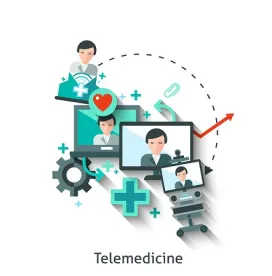CMS just announced a clarification that remote patient monitoring under CPT code 99457 may be furnished by auxiliary personnel, “incident to” the billing practitioner’s professional services. An “incident to” service is one that is performed under the supervision of a physician (broadly defined), and billed to Medicare in the name of the physician, subject to certain requirements, one of which is discussed below. The announcement came in a technical correction issued March 14, 2019 and is effective immediately. This is a highly-anticipated change among remote patient monitoring companies, as we discussed in greater detail in our previous coverage.
The newest code for remote patient monitoring, CPT code 99457, went live in January 2019. It offers Medicare reimbursement for “Remote physiologic monitoring treatment management services, 20 minutes or more of clinical staff/physician/other qualified healthcare professional time in a calendar month requiring interactive communication with the patient/caregiver during the month.”
When the final rule for the 2019 Physician Fee Schedule was published in November 2018, CMS stated that CPT code 99457 describes professional time and “therefore cannot be furnished by auxiliary personnel incident to a practitioner’s professional services.” With this technical correction, CMS deleted that sentence, instead replacing it with: “We thank commenters and confirm that these services may be furnished by auxiliary personnel incident to a practitioner’s professional service.” This is a welcome revision long-awaited by telehealth providers.
The change now allows RPM services to better mirror Chronic Care Management (CCM) services (CPT code 99487, 99489, and 99490). However, the default rule for incident to billing under Medicare requires direct supervision, not general supervision. Direct supervision means the physician and auxiliary personnel must be in the same building at the same time (albeit not the same room). In contrast, general supervision does not require the physician and auxiliary personnel to be in the same building at the same time, and the physician could instead use telemedicine to exert general supervision over the auxiliary personnel.
For CCM Services, CMS created a regulatory exception allowing “incident to” billing under general supervision. Unfortunately, the recent technical correction for RPM does not state that CPT code 99457 can be delivered under general supervision. Indeed, CMS has not revised the RPM regulations to allow an exception to the default requirement of direct supervision. While the correction is good news for providers and patients, changing the RPM rules to expressly allow incident to billing of CPT code 99457 under general supervision will make a huge difference in operations and business models, thereby allowing more patients to enjoy the quality-improving benefits of remote patient monitoring.
Providers and technology companies seeking a change to allow general supervision should consider submitting comments to CMS on this topic once the 2020 Physician Fee Schedule proposed rule is issued (typically the beginning of July). We will continue to track these rules and changes as they develop.




 />i
/>i

